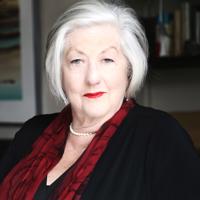Janice Chapman In Conversation With James Platt: Honing Your Pedagogical Skills
Thursday 21st October 2021, 5:00 PM - 7:00 PM (London Time)
Anticipating the upcoming release of the fourth edition of Janice Chapman’s Singing and Singing Teaching: A Holistic Approach to Classical Voice (Plural Publishing) later this year, authors and editors of the book Janice and James Platt discuss the updated approaches, new information and “sharpened” pedagogical tools outlined in the new and greatly expanded edition.
This workshop is designed primarily for teachers and singers of classical voice and will introduce the following concepts with in-depth discussions, practical examples and Q&A’s.
- Primal Sound & Current Neurology
- Primal sound or voluntary emotional vocalisation as the bedrock of elite classical singing
- Using emotional triggers to shape the voice in a holistic manner
- From Pure Accent Method into Supported Singing
- An updated palpation protocol to identify the correct muscle support junctions and their engagement for efficient exhalation/support for classical singing
- The SPLAT Inhalation and its variants
- Assessment and remediation of common breath management faults including epigastric locking and the mismanagement of the abdominal wall and ribcage
- The Advanced “Dial-A-Vowel” Exercise
- Locating the best gross oral posture of the tongue for maximal classical resonance
- The advanced use of the American Retroflex “R” to help locate a singer’s resonant sweet spot
- Managing consonants without compromising optimal resonance
- Redefining the Open Throat
- Collar Connection and the lower larynx
- The Pre-Yawn Gesture
- The combination of a wide pharynx and a raised tongue
- The high soft palate (velum)
- Maintaining pharyngeal width
- Deconstricting the false vocal folds
- Relaxing extraneous pharyngeal tension
- The role of optimal breath management in maintaining the open throat
- The open throat in combination with appropriate pharyngeal tuning
- Collar Connection and the lower larynx
Professor Janice Chapman
Professor Janice L. Chapman, A.U.A., F.G.S., O.A.M. is a singing teacher of world renown. Born and educated in Australia, she won a number of major competitions...
James Platt
James has been a professional soloist, singing teacher, vocal pedagogy lecturer and consultant for over 15 years. He is currently undertaking his PhD...
Sorry, this is an archived short course...
We have plenty of upcoming short courses coming soon. See details of some of them below or look at the full list of short courses.


Tuesday 3rd March 2026
5:00 PM - 7:00 PM
(London Time)
Sex differences in VOICE!

Dr Richard Lissemore
This two-hour workshop, led by performer, articulatory phoneticist, and voice physiologist, Dr. Richard Lissemore, will examine in detail the role that biological sex plays in the perception and pedagogy of singing voices. We'll consider how parameters such as anatomy, physiology, articulation, resonance, and radiated acoustics influence the perceptions and pedagogical decision-making of singing teachers.

Wednesday 4th March 2026
1:00 PM - 2:00 PM
Wednesday 11th March 2026
1:00 PM - 2:00 PM
Wednesday 18th March 2026
1:00 PM - 2:00 PM
Wednesday 25th March 2026
1:00 PM - 2:00 PM
Wednesday 1st April 2026
1:00 PM - 2:00 PM
Wednesday 8th April 2026
1:00 PM - 2:00 PM
(London Time)
Learn to Coach RP and SSBE – a Certificate in Accent Coaching

Louisa Morgan
This six-week course is an opportunity to learn about both Received Pronunciation and Standard Southern British English. Rather than a course in learning how to speak RP/SSBE (there are many brilliant available courses for this already), this course is about learning how to coach it.

Thursday 5th March 2026
1:00 PM - 2:30 PM
Thursday 12th March 2026
1:00 PM - 2:30 PM
(London Time)
Acting Emotion: Perspectives from the Masters

Louisa Morgan
Stanislavski said, “our artistic emotions are, at first, as shy as wild animals and they hide in the depths of our souls.” Michael Chekhov said, our bodies should be like a “sensitive membrane, a kind of receiver and conveyor of the subtlest images, feelings, emotions and will impulses.” And Meisner said we should be “living truthfully under imaginary circumstances.” Join Louisa Morgan in this 2-part course as she explores a range of well-known acting practitioners to investigate what they believed (or believe) about emotion and how they approached it in their work. She'll compare their work to see where they align and where they diverge.

